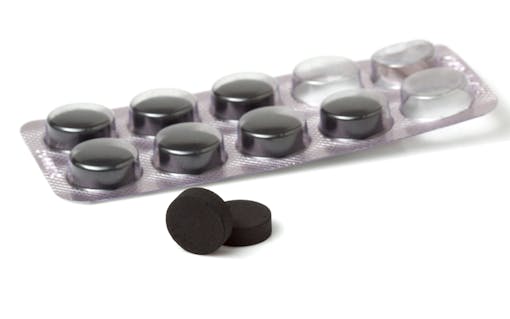There have been a number of studies reporting the positive benefits of treating certain disorders in animals with cannabidiol (CBD), the non-intoxicating ingredient in cannabis. In fact, there are even CBD dog treats available at some dispensaries. However, although CBD may be beneficial for your pet, keep in mind that dogs, cats, and other animals and THC do not mix, and purposefully getting your pet high on THC is not cool, not funny, and could actually be life-threatening for your furry friend.
Even if you’re not hotboxing your pet, your dog, cat, or other domesticated animal could accidentally get into your stash and consume something infused with THC. Perhaps you’ve just returned from the dispensary with a bag full of edible cannabis goodies and you accidentally left them out on the couch. Maybe an errant nug strayed from the confines of your stash and made its way down to doggy level. No matter how it happened, it did, in fact happen. Your dog, cat, or other pet got into your marijuana stash and you’re terrified of what could happen.
Don’t panic! First and foremost, let’s determine what exactly your pet got into.
Step 1: Determine the Type and Potency

Here’s a quick rundown of the types of cannabis your pet could have gotten into, ranked from least severe to most severe:
- Raw cannabis flower – least severe because it’s not decarboxylated, so the THC hasn’t been activated
- Vaped or burned cannabis flower – not ideal because there could still be some activated THC in it
- Non-chocolate infused edibles – can vary in danger levels depending on the edible’s potency and ingredients
- Cannabutter – can vary in danger levels depending on the potency of the cannabutter
- Concentrates – inherently potent; therefore, even the smallest amount of concentrate (e.g., a dab) can have an acute effect on an animal, particularly smaller pets
- Chocolate-infused edibles – can vary in danger levels depending on the edible’s potency, but certain properties in chocolate can be toxic to animals such as dogs and cats
The potency of your cannabis product also plays a huge factor in the severity of your pet’s situation. If your animal got into a cannabis-infused edible, how strong was it? 10 mg of THC is very different than 100 mg of THC, especially in a 50 pound pup. Did your pet chew on a gram of cannabis? An eighth? A homemade batch of brownies? A tub of canna-butter? A dab of concentrate? A gram of concentrate?
Step 2: Evaluate Your Animal’s Symptoms

Once you’ve determined the approximate amount of cannabis that your pet has consumed, you can better determine your next course of action. If your animal ingested a small amount of cannabis or a lower THC dosage, you’re lucky and this is likely a mild case.
Check for the following symptoms your pet is exhibiting:
- Mild toxicity will result in sluggishness, lethargy, excessive saliva production, and wobbling.
- More extreme cases may result in loss of bodily control, urinary incontinence, low blood pressure, a slow heart rate, seizures, or even death (via asphyxiation on their own vomit)
Step 3: Soak Up the Bad Stuff

You can try avoiding a worst-case scenario for your precious furbaby by soaking up your pet’s stomach contents. Activated charcoal is available at most drug stores and can soak up the toxins in your pet’s stomach, including any remaining THC that hasn’t been absorbed into their bloodstream yet.
Note: Do not attempt to use activated charcoal if you’ve already tried to induce vomiting.
Step 4: Induce Vomiting

If step 3 didn’t work, try to make your pet puke. You can use hydrogen peroxide to induce vomiting — use one teaspoon per 10 pounds on your pet, every 15 minutes (no more than three times total).
Monitor your pet closely, as this method can result in excessive vomiting or bloody stool. Don’t overdo it and watch for signs of distress, in which case you may need to seek a professional.
Note: You will feel awful and heartless and your pet will not understand why this is happening. Sorry, that’s just how it goes.
Step 5: Seek Professional Help

If all else fails, and especially if you realize that your pet has consumed a large amount of cannabis or THC, this may be a necessary, and even life-saving next step. Be honest with your veterinarian – he or she will be able to determine the outcome either way, so transparency will save you both time in the long run.
Give the vet as much information as possible – what kind of product, its potency, how long it has been since it was ingested, etc. For example, if the edible contained chocolate, this could put your pet at further risk, so try to be specific with details.
Can Cannabis Actually Kill Your Pet?

Technically yes, although your animal has to eat a considerable amount of it. A study conducted in 1983 found that 130mg of THC per kg of weight killed 50% of the dogs being tested, although the THC was administered intravenously. As Russ Belville from Alternet explains:
“Your dog would have to eat a pound or more of strong pot or edibles, and be a smaller-sized dog, and you’d have to ignore its symptoms, and the dog would have to pass out and choke on its vomit, or in the case of a chihuahua in New Zealand, experience hypothermia when the same blood vessel dilation that makes your eyes red makes the dog radiate away all its body heat.”
Fortunately, most cases of cannabis toxicity in pets can be resolved with proper action and care. And next time, keep your cannabis secure and out of the paws of your pet!





